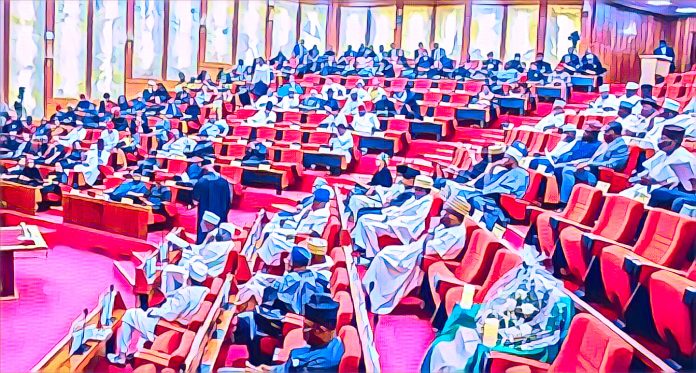KEY POINTS
-
The Nigerian Senate approved a ₦1.81 trillion budget for the FCT in 2025, with 72% allocated to capital projects.
-
The budget targets urgent improvements in security and healthcare across Abuja and nearby communities.
-
FCT Minister Wike pledged transparent execution and stressed the importance of Abuja’s strategic national role.
The Nigerian Senate has passed the 2025 Federal Capital Territory (FCT) Statutory Appropriation Bill, approving a total budget of ₦1.81 trillion for the fiscal year.
The comprehensive budget package, which combines personnel, overhead, and capital expenses, is expected to drive major infrastructural upgrades and address key service delivery gaps in Abuja and its surrounding satellite communities.
According to the approved figures, ₦150.35 billion is allocated for personnel costs, ₦352.03 billion for overheads, while a substantial ₦1.31 trillion has been set aside for capital expenditure, signaling a strong government focus on development projects.
FCT Minister Nyesom Wike welcomed the passage of the budget, emphasizing the urgency of tackling Abuja’s mounting challenges. “Abuja is not just a political and administrative capital; it is a global diplomatic center that requires a tailored approach to security, infrastructure, and health systems,” he said during a recent press briefing.
Budget focuses on security reinforcement and medical upgrades
AAN TV reports that among the top priorities under the 2025 FCT budget are improvements to the region’s security architecture and healthcare infrastructure. Minister Wike expressed concern over rising security incidents across various parts of the capital, calling for “a coordinated national strategy to protect residents, government institutions, and foreign missions.”
The budget, according to Wike, will support the procurement of surveillance technologies, expansion of security command centers, and strategic placement of rapid response units. Furthermore, several underserved districts are expected to receive new police outposts as part of broader efforts to enhance visibility and emergency response.
In the health sector, Wike disclosed that funds would also be used to operationalize newly acquired diagnostic machines, improve hospital facilities, and train healthcare workers. “We’re shifting from reactive to preventive healthcare. The FCT must be equipped to meet growing demands, not just from residents, but also from the diplomatic corps and visitors,” he added.
This year’s budget is the product of rigorous inter-agency consultations involving the Federal Capital Territory Administration (FCTA) and committees from the National Assembly. The bill’s passage reflects a shared legislative-executive resolve to close service delivery gaps while positioning Abuja as a model capital city for Africa.
Legislators emphasized the importance of timely budget implementation, noting that the capital’s infrastructure must match its increasing national and international responsibilities. “This is about laying the foundation for a city that reflects Nigeria’s ambition,” said Senator Opeyemi Bamidele during plenary.
With implementation set to begin in July, attention now shifts to how the FCTA and relevant agencies will execute the plan efficiently. Wike has pledged transparent monitoring and public updates on project milestones.



